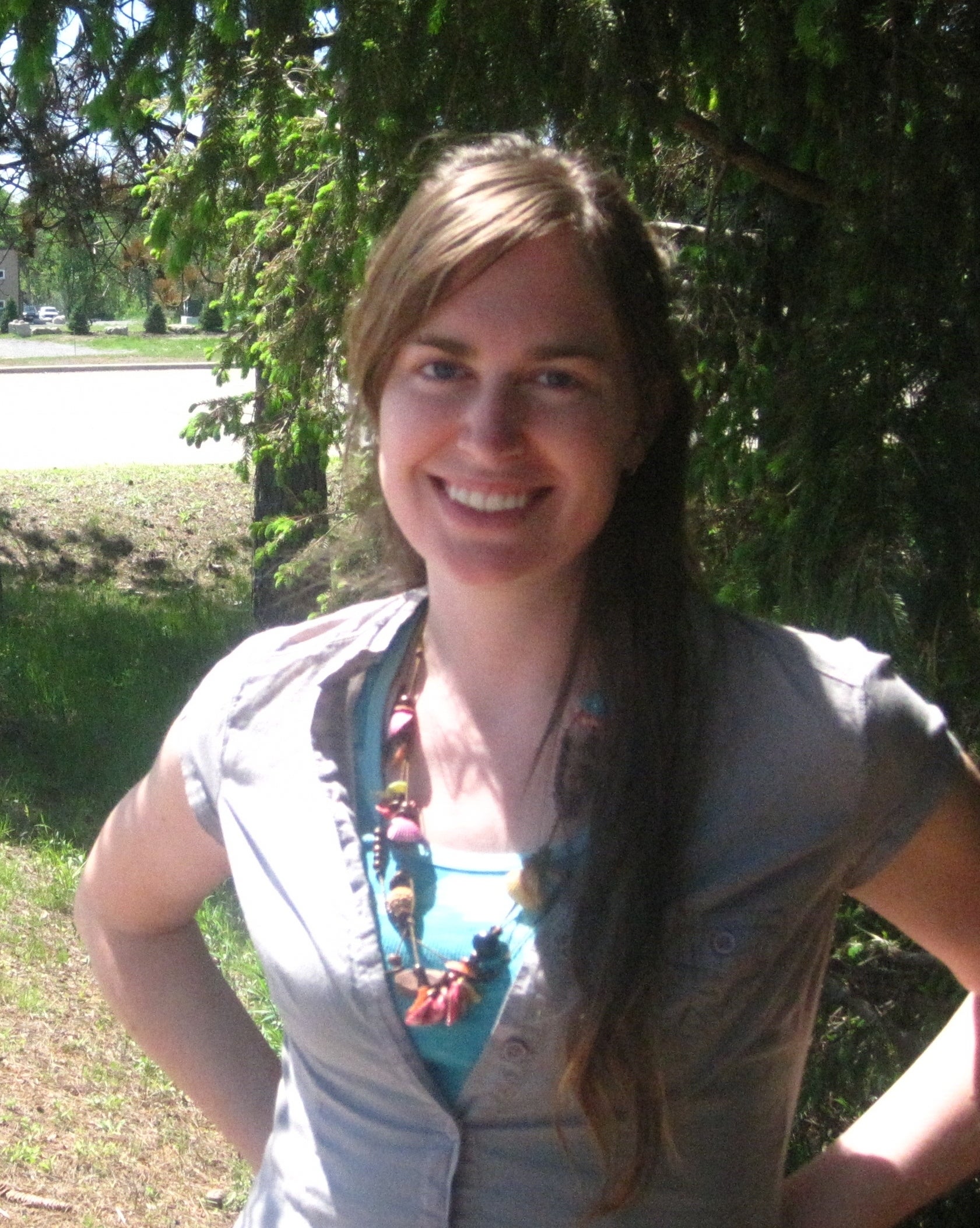For Local Economic Development students who are new to the field, spring term is typically when they put away their books and start learning about economic development on the ground. A four-month internship is required for these future EcDev professionals but not all internships look the same; in fact, some ‘internships’ are really the first four months of a longer contract or permanent position.
Now that the interns have a couple months under their belts, we decided to check in and see how a few of them are doing.
The Students

Michèle Bridger – Michèle’s internship is a 6-month contract with the Municipality of North Grenville, which also happens to be her home town. Her position is funded by the Community Futures Development Corporation’s (CFDC) Eastern Ontario Development program.

Joseph Pavia – Joseph is a Research Analyst at the City of Mississauga Economic Development Office (EDO) working under the EDO’s Research Analyst and Manager of Business Development and Economic Partnerships. Joseph started as a summer intern working on a variety of projects in research, marketing and internet programming. He was recently extended to January 2014.
Lindsay Leung – Lindsay is working on contract for the Town of East Gwillimbury (EG), a small municipality in the north part of York Region. She was hired as a Business Development Assistant to develop and coordinate the community of Mount Albert’s Downtown Revitalization Strategy and Community Improvement Plan.
Q&A
How did you find and secure your internship?
Michèle - A fellow LED student told me about it. I applied to the municipality, got an interview and received the position.
Joseph - The LED program provides students with information regarding internships and job postings throughout the year that may be used to satisfy the internship requirement for the program. The City of Mississauga Economic Development Office sent out a request to the LED program seeking a student currently enrolled in the program to intern for a four month period. After the job posting was relayed to LED students by Michelle Madden, the Business Engagement Coordinator for the School of Environment, Enterprise and Development, I secured my internship by completing the application process and an interview.
Lindsay - This position/opportunity presented itself to me through my own network (a friend of mine did a co-op placement with EG). During this past year’s EDCO conference, I had been re-connected with East Gwillimbury’s Economic Development Assistant, Aimee Artinian. During the EDCO conference, Aimee mentioned she was in the process of applying to South Lake CFDC to hire a Youth Intern and that if successful with the application, they would be looking to hire a student in May/June. Once the funding was secured (May), Aimee contacted me directly to set up an interview.
How well did the LED program prepare you for this position?
Michèle – The program was extremely relevant. My experience in this field was non-existent before the program and I can now communicate effectively, in the EcDev language. I understand the many aspects of this job. That said, I’ve also learnt a lot on the job about website development and more about community engagement.
Joseph - The LED program has provided me with the knowledge and skills necessary to step into a position in municipal economic development where I have been able to adapt and be successful. The core courses of Theory and Practice of LED, Regional Development and Marketing for the Public Sector provide a solid foundation and background for understanding how municipalities undertake economic development. The themes and concepts that are discussed throughout these courses--such as investment attraction, marketing, strategic planning, innovation and collaboration with post-secondary institutions--are all key aspects of economic development that are prominent in Mississauga. I have been able to transfer and apply my knowledge gained from these courses to the work I complete daily at the EDO. Other classes such as Entrepreneurship and Small Business Development as well as Regional Economic Analysis were also helpful. They provide an understanding of the business and marketing component involved with economic development as well as analyzing data to measure how well a municipality is performing economically and to how to interpret that data to guide strategic planning. Furthermore, as a highly demanding and intensive graduate experience, the LED program has helped me to further develop my time management, research, analysis, presentation and communication skills. These skills are vital for professional development and are required on a day-to-day basis working in a municipal setting.
Lindsay - The LED program has prepared me so well for this position and the role I have been hired for. It is because of the program’s courses and types of projects we were assigned throughout the year that I have been able to positively contribute to my department. Every core course has been relevant to the work I have been asked to do (i.e. small business development & entrepreneurship was particularly helpful for working on a downtown revitalization strategy). Another benefit of the LED program is the opportunity to take planning courses (i.e. Land Development, Fundamentals of Land-use planning). These course electives have been very useful, especially since I’ve been working directly with the Town’s planners. Having taken some planning courses has allowed me to be a better informant when working with potential investors and new businesses.
What gets you out of bed and looking forward to work each day?
Michèle - I enjoy the diversity of my daily tasks and responsibilities. I get to conduct business visits, host seminars, lead volunteer strategy sessions, and many other things. I also get to work on effective communication with social media, website development and newsletters etc. Diversity is key to happiness. I also work with two other interns who’ve been here before and that’s nice too.
Joseph - Each day there is always something new on the agenda at work. Activities throughout the day can involve meetings with staff, presentations and attending events. Working in the EDO provides an environment for continuous learning about economic development and professional self-development. Every day there is also an opportunity to make connections with other professionals in the field. This has allowed me to build my professional network of contacts for prospective employment and has given me access to resources for my Major Research Paper.
Lindsay – As a long time student, actually being paid for the work I do has been a great motivator; however, I also enjoy the types of projects too.
Is there anything particularly challenging about your job?
Michèle – Day-to-day, there’s lots of multi-tasking and trying to catch up with everyone else who is here permanently. This is also my first office job so it can be difficult to sit still. On a larger scale, dealing with bureaucracy has been challenging; as well as dealing with a limited scope of what economic development is where 'local food' has been deemed not a priority (which is what I did all my research and projects on).
Joseph - Coming from a planning background, this was my first experience working in the economic development field. There were many new concepts and terminologies that I was not previously familiar with. However, the LED program provided me with the background needed to be knowledgeable. It required a couple of weeks before I felt comfortable in the position; however, the staff were extremely helpful in making an easy transition into the office. There are also times when my managers will require a piece of information or briefing on an issue that needs to be completed and delivered in a short timeframe. Producing high quality work, meeting other deadlines and juggling a variety of projects and tasks can sometimes prove to be challenging. However, good time management skills and being able to adapt to new challenges quickly have permitted me be successful when challenged with a complicated task.
Lindsay - The most challenging part of my job is working independently because the department is relatively small and the projects we are involved in requires all of our resources including time away from the office. However, I’ve managed to ask the right questions and have always been encouraged to ask for help wherever needed.
What piece of advice would you give a student looking for a similar internship?
Michèle – It’s a great advantage to know the place your applying for. I grew up in this town so it was good for them as a municipality to try and attract me back here. Make sure your resume is great. I did about a week of work on mine before I applied anywhere, and got a pretty good return rate.
Joseph - For a student looking to work in the public sector, working at a municipality provides a great opportunity to makes connections and work alongside with other departments in municipal government. You are exposed not only to economic development, but also a variety of other services and programs carried out by municipalities. Working at a large urban municipality like Mississauga also exposes you to a wide variety of economic development activities such as foreign direct investment, community marketing and innovation.
Lindsay - I think it’s important for LED students to take the time and effort to figure out what they are most interested in the field of economic development and why. This allowed me to figure out which courses were most beneficial to me in order to become the best candidate for this job. Another piece of advice for students wishing to take a similar career path is to be open to taking a role at a smaller municipality that will give you an opportunity to learn and challenge yourself. I would also encourage future students to take advantage of every networking event and to follow up with those you connect with because you never know when/where/what opportunity will present itself.